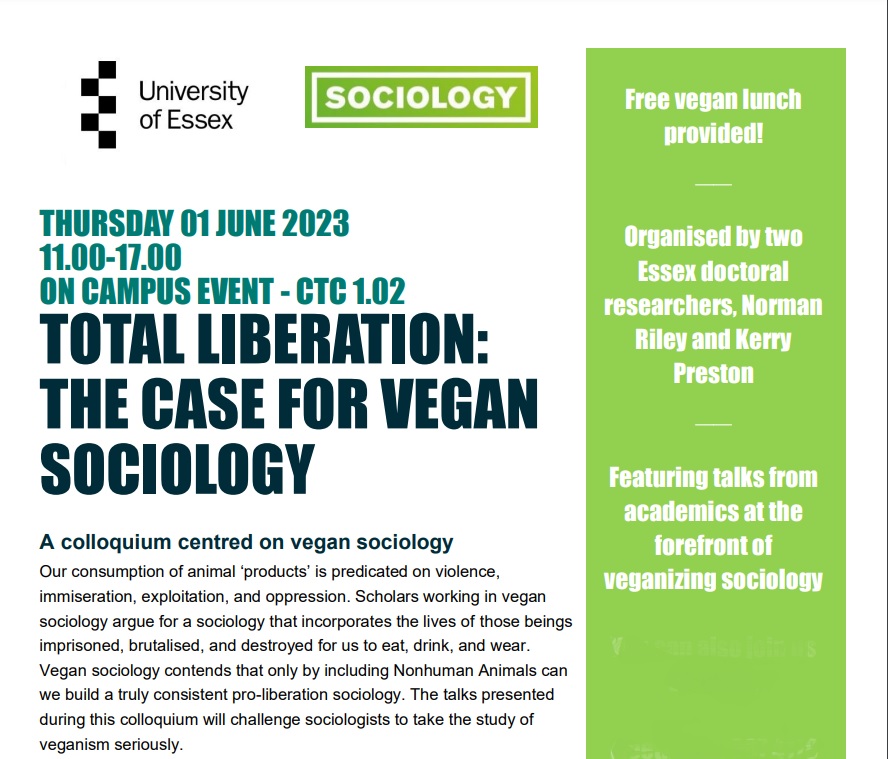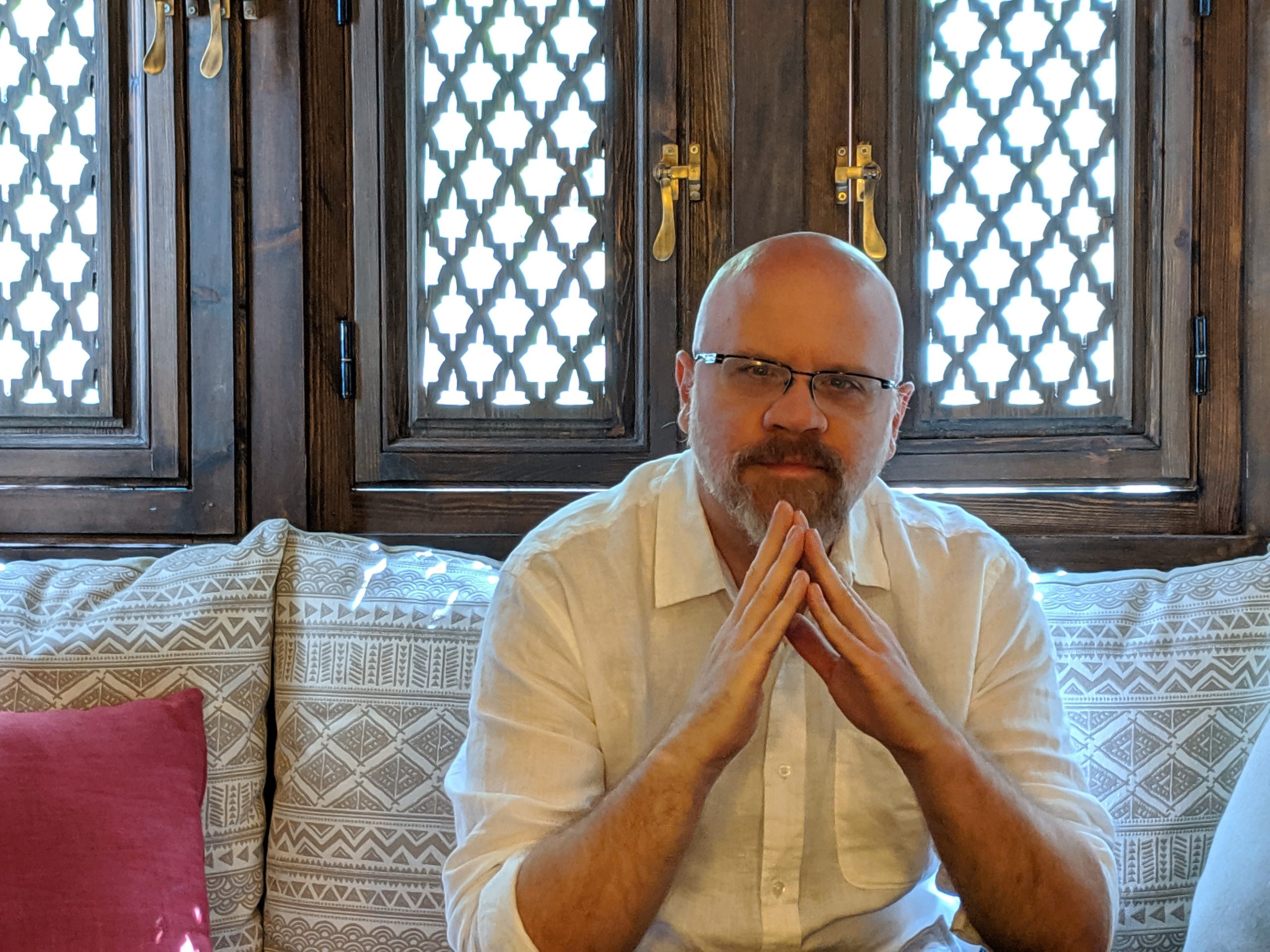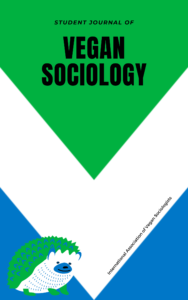Sociology colloquium Thursday 01 June 2023
Dear colleagues,
We are delighted to invite you to a colloquium centred on vegan sociology. Organised by two Essex doctoral researchers, Kerry Preston and Norman Riley, the day will feature talks from academics at the forefront of veganizing sociology. A free vegan lunch will be provided!
Our consumption of animal ‘products’ is predicated on violence, immiseration, exploitation, and oppression. Scholars working in the field of vegan sociology argue for a sociology that incorporates the lives of those beings imprisoned, brutalised, and destroyed for us to eat, drink, and wear. Vegan sociology contends that only by including Nonhuman Animals can we build a truly consistent pro-liberation sociology. The talks presented during this colloquium will challenge sociologists to take the study of veganism seriously.
When: Thursday 01 June 2023 from 1100 to 1630
Where: CTC 1.02 and online
Speakers are:
1100-1200: Dr Corey Lee Wrenn, a sociologist and scholar of social movements and human-nonhuman relations based at the University of Kent, will present her talk What is Vegan Sociology?
1200–1300: Dr Matthew Cole is a Lecturer in Criminology at the Open University. Dr Cole will discuss his contribution to Human-Animal relationships in times of pandemic and climate crises: multispecies sociology for the new normal, edited by Josephine Sutton and Zoei Sutton, and due to be published by Routledge later this year.
1400-1500: Norman Riley will present Choose life: The liberatory potential of political veganism
1500-1600: Dr Kate Stewart, Associate Professor in Sociology at the University of East Anglia, will present her talk Vegan Sociology and the endangered emancipatory purposes of the University.
1600: Open discussion
Speaker abstracts are attached to this email
Please do join us for what will be a day of informative discussion and debate on this nascent and exciting field of study.
Register here or see the flyer
We look forward to seeing you on June 1st.



